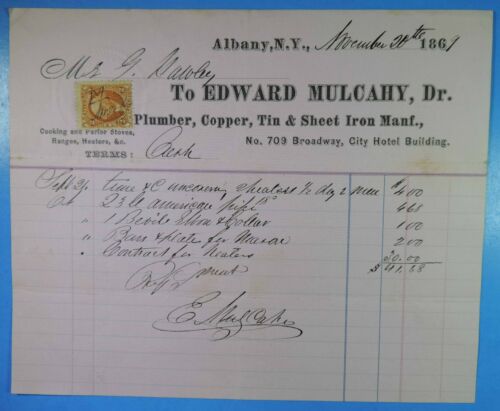
Spray on roof coatings are an excellent way to protect commercial roofing systems and extend their life. They can reduce heat reflection into your building, which in turn helps to cut down on energy costs. They are extremely affordable and can help save money on your utilities bills.
Your roof coating's quality can be affected by several factors. For instance, you should look for a product that is elastomeric and offers superior protection from UV rays and water resistance. Also, look for products that are highly reflective and easy in application.
If you are looking for a spray on roof coating, it is important to choose one that is durable and can be easily maintained. An improperly applied roof coating can quickly cause damage in your commercial building.
There are many different types of spray on roof coatings, and each has its own benefits. Most common are silicone, 100% acrylic and spray polyurethane foam. Each type of silicone is best suited for particular situations.

A professional roofer should be consulted if you are looking for a spray-on roof coating or a new solution. They will perform a detailed inspection of your roof and recommend the best roofing solution for your building.
To remove any dirt or debris, they will thoroughly clean the roof. The roof will be inspected for adhesion to ensure that it is ready for spray-applied roof coating.
A good roofing contractor will also perform a thorough cleaning and priming of your roof before they begin work on it. This will ensure that no surface contamination is present that could affect the application process.
When your roof is restored and sealed with a spray on roof coating, it will be ready for years of hassle-free, watertight performance. The roofing contractor will repair and reinforce seams, flashings, and penetrations with mesh and coating before they apply the top coat.
After the coating is dry, it's easy to keep your building safe from UV rays and other harmful elements. It will reflect the sun's radiation back into the atmosphere, which will keep your interior cool and reduce your heating and cooling expenses.

You can also have a spray-on roof coating applied to your commercial property. This will make it extremely durable and can withstand any weather conditions. It will help prevent damage from extreme heat, rainfall, and wind.
It is important to ensure that your roofing contractor provides a warranty for their work and the products they use. This will give you peace of mind and make it easier for you to get ahold of them if there is a problem with your roof in the future.
Spray on roof coatings for commercial buildings are a great option because they can increase the life expectancy of your roof by eliminating the need to repair or re-coat. They are very easy to apply, and can protect your roof at a low cost.
FAQ
When do I have the obligation to pay for the service/contractor
The type of service provided will determine the payment schedule. You would normally pay the contractor when the job is done. You might pay only after you receive and test the product if it is a product purchased from a supplier like a kitchen range cooker.
Do I need a lawyer to sign my Service Agreements?
No. No. As a precaution, however, it is a good idea to appoint one.
Legal representatives are individuals who act on behalf a person. If you are an entrepreneur, you may choose to have someone represent you professionally.
This could involve hiring a solicitor, accountant, or other professional. It could also mean someone being appointed to manage your business interests.
In most cases, the client appoints a lawyer. But sometimes, a legal representative is hired by the vendor.
Legal representation in any case means that you are legally protected.
Where can you find more information regarding building permits
Talk to your local government (for example, NSW Local Government Association), and your local realty agent. They should be available to help you determine the right steps to take to get building permission.
Who issues a Service Agreement
The service agreement between you and your customer defines how you will provide them with services. It details the customer’s responsibilities, what they can do for you, and when they will have to pay.
Additional fees for services may also be confirmed in the service agreement.
Service agreements should contain all terms and conditions applicable to the contract. This includes payment terms, delivery times, warranties, and the like.
You will be able to include everything in your agreement if you use the template.
Statistics
- (1) Ascertain the extent to that offers are based on the payment of overtime and shift premiums; and (2) Negotiate contract prices or estimated costs without these premiums or obtain the requirement from other sources. (acquisition.gov)
- Depending on the client's trustworthiness and financial stability, a deposit is usually 10 to 50% of the total contract amount. (lawdepot.com)
- (d) Contractor disputes related to compliance with its obligation shall be handled according to the rules, regulations, and relevant orders of the Secretary of Labor (see 41 CFR60-1.1). (acquisition.gov)
- Reasonable late fees go up to 25% per year on unpaid sums. (lawdepot.com)
- (v) Place or places of performance of the prime contract and first-tier subcontracts estimated at $10 million or more, if known. (acquisition.gov)
External Links
How To
What should a service arrangement include?
Service agreements (SAs) are essential for any business relationship. It defines what you want from each other, and how you will get it. The SA also describes when and how you expect the other side to meet its contractual obligations.
These are the key components of a successful SA:
-
Both parties will agree to the scope of work.
-
Particulars of the payment terms, including delivery dates and start dates.
-
An agreed price for your project.
-
Any additional costs like VAT etc.
-
Whether there is any other matter that should be discussed.
-
Who will take responsibility if there is an error in the job?
-
How disputes are resolved
-
What happens to a contract breached by one party?
-
What happens in the case of a dispute?
-
When does this contract go into effect
-
What happens if a party doesn't perform.
-
How long will it take to pay invoices
-
Who pays for travel expenses?
-
Where the money comes.
-
What happens if the client decides to change his mind about the project.
-
What happens when the supplier doesn’t show up.
-
Who has permission to view the site during construction
-
What happens when the customer cancels a project?
-
What happens if the product malfunctions?
-
What happens if the supplier refuses to sell parts?
-
What happens if the equipment breaks down.
-
What happens if a project takes longer than expected?
-
What happens when the work is not completed within the specified timeframe?
-
What happens if the quality of the finished project falls below expectations?
-
What happens if the cost overruns.
-
What happens if you don't receive your materials on time?
-
What happens if the material arrives damaged?
-
What happens to the products if they are not up-to-standard?
-
What happens if the job gets cancelled before it is completed?
-
What happens if the company goes bust.